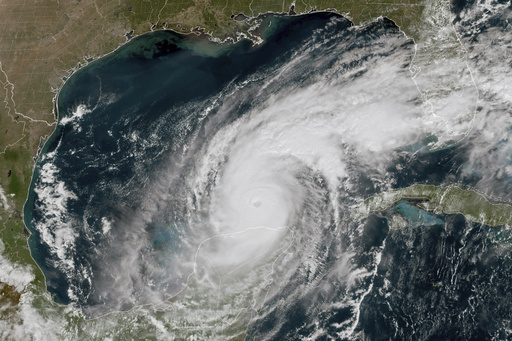Peter Dodge, a distinguished scientist known for his extensive work in studying hurricanes, was honored in a significant way this week. Having made nearly 400 flights into hurricane conditions during his career, his ashes were released into the eye of Hurricane Milton on Tuesday, serving as a heartfelt tribute to his legacy within the National Oceanic and Atmospheric Administration (NOAA).
Shelley Dodge, Peter’s sister, expressed her emotions regarding the gesture, stating, “It’s very touching. We knew it was a goal of NOAA to make it happen.” The poignant ceremony of scattering his ashes took place just hours before Hurricane Milton approached land near Siesta Key, Florida. The reconnaissance flight, which logged essential data like position and wind speed, culminated with a memorial note marking it as Peter Dodge’s 387th and final flight.
“It’s bittersweet,” said Shelley Dodge. “On one hand, a hurricane’s coming and you don’t want that for people. But on the other hand, I really wanted this to happen.” Peter Dodge passed away in March 2023 at the age of 72 following complications from a fall and a stroke, according to his sister.
For 44 years, Dodge served in federal roles, earning accolades for his work on technologies that studied the destructive winds of Hurricane Katrina in 2005. He had a remarkable experience flying into Hurricane Hugo in 1989, where the crew encountered severe turbulence and even experienced an engine catching fire. “They almost didn’t get out of the eye,” Shelley recalled, detailing the chaos where items were thrown around the cabin, but fortunately, crew members emerged unscathed.
Vision problems eventually grounded Dodge from continuing in reconnaissance roles, yet he remained deeply involved with NOAA in other capacities. Shelley Dodge kept in close contact with NOAA, who updated her on the plans to carry out her brother’s final mission. She conveyed the news to family members, and the long-awaited flight was finally executed on August 8th. “It finally did on the 8th. I didn’t know for sure until they sent me the official printout showing exactly where it happened in the eye.”
According to a newsletter from NOAA’s Atlantic Oceanographic and Meteorological Laboratory published after his passing, Dodge specialized in radar technology with a particular focus on tropical cyclones. He had collaborated with the National Hurricane Center and the Aircraft Operations Center, serving as an onboard radar scientist during hurricane missions and later transitioning to an expert in radar data processing.
During the tribute, his ashes were placed in a carefully prepared package adorned with various symbols, including the flag of Nepal, in honor of his time spent as a Peace Corps volunteer, where he taught math and science to high school students prior to his meteorological career.
Beyond his professional accomplishments, Dodge was known for his passion for gardening, especially his love of bamboo. He also practiced Aikido, attending a session just days before his death. “He just had an intellectual curiosity that was undaunted, even after he lost his sight,” Shelley remarked, reflecting on her brother’s remarkable character and contributions.


